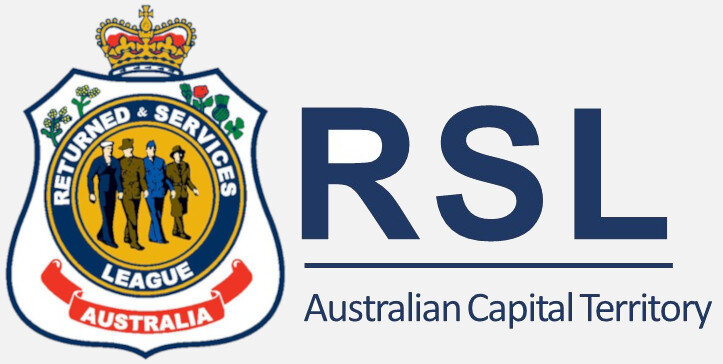From Service to Sole Trader
A veteran’s guide to being your own boss.
As you transition out of the Defence Force, it's natural to consider what your next steps will be in the civilian world. For many, the thought of becoming a sole trader is appealing, as it offers independence, flexibility, and the opportunity to directly apply skills gained during service.
The RSL Veterans’ Employment Program can assist you on your path to becoming a sole trader, providing free advice, marketing assistance and materials (funding opportunities available*) and networking opportunities to get the ball rolling. Best of all, it’s free for veterans, their partners, and their immediate family members.
If you're looking at stepping into the world of business as a sole trader, this guide will help to set you on the right path.
Is Being a Sole Trader Right for You?
Becoming a sole trader is not for everyone. But how do you know if it's for you? Start by asking yourself the following questions:
Independence & Control: Are you looking to be your own boss and make decisions without waiting for approval?
Skillset & Experience: Do you have a unique skillset or trade that can be offered as a service or product?
Risk Tolerance: Are you prepared to bear the responsibility if things go south? As a sole trader, all the responsibilities lie with you – but so do the rewards!
Flexibility: Do you value setting your own hours and work location?
If you find yourself nodding affirmatively to most of these, the sole trader route might be a promising avenue.
Roles & Industries Suited for Sole Traders
While you can run almost any business as a sole trader, some industries are more sole trader-friendly than others:
Trades: Electricians, carpenters, plumbers, and other trades can operate successfully as sole traders, taking contracts and jobs as they come.
Consultancy & Coaching: If you have expertise in a particular field, be it military strategy, leadership, or anything else, you can offer consultancy services.
Freelancing: Writing, graphic design, web development, and other digital services can be offered on platforms like Upwork or Freelancer.
Tutoring & Training: Use your military training or any other skill to tutor or train individuals or groups.
E-commerce: Sell products online, either products you've made or sourced.
The Current Landscape for Sole Traders
The COVID-19 pandemic altered the business landscape globally, and there's a silver lining for sole traders:
Digital Adoption: With more people moving online, there's an increased demand for digital services and e-commerce. This has opened vast opportunities for sole traders.
Flexibility: As businesses have become more accustomed to remote work and digital collaboration, sole traders can now work with clients from all over Australia, or even globally.
Trust: With many people forced to work remotely during lockdowns, employers that might have been otherwise adverse learnt they could trust individuals to work outside the office environment.
Evolving Needs: Post-pandemic, businesses are seeking new ways to operate, and this can be an opportunity for consultancy and strategy services.
However, it's crucial to remember that while opportunities have opened up, so has the competition. It's essential to find a niche and market yourself effectively. Scroll down for more information on how to market yourself as a sole trader.
Tips For Becoming A Sole Trader
1. Understand What Being a Sole Trader Means
As a sole trader, you'll be running your own business as an individual. This means you're personally responsible for every aspect of the business – the successes, the challenges, and the financial liabilities. It's different from setting up a company where the company is a separate legal entity.
2. Get Your ABN
To operate as a sole trader in Australia, you'll need an Australian Business Number (ABN). It's a unique 11-digit number that identifies your business to the government and the wider community. Applying for an ABN is free and can be done online.
3. Choose a Business Name (optional)
If you’re planning on operating under a name different than your own, you'll need to register a business name with the Australian Securities and Investments Commission (ASIC). Ensure the name reflects your service, is memorable, and isn't too similar to existing businesses.
4. Know Your Tax Obligations
As a sole trader, you'll need to include all your business income (and deduct allowable business expenses) on your personal tax return. It's a good idea to consult with a tax professional or accountant to understand your obligations fully.
Remember to also register for the Goods and Services Tax (GST) if your annual turnover is $75,000 or more, and add GST to your client invoices.
For sole trader tax tips and advice, H&R Block has some great resources here.
5. Understand Your Super Obligations
You’re not obligated to pay superannuation for yourself. However, it's wise to continue contributing to your super to secure your financial future. If you employ others, you'll be required to pay super on their behalf. The ATO has advice on super for sole traders here.
6. Get the Right Insurance
There are various types of insurances you might consider as a sole trader, such as public liability insurance, personal accident and illness insurance, and property and equipment insurance. It's essential to gauge the potential risks associated with your business and get insured accordingly. Depending on your industry, potential clients may insist you are adequately insured before they engage your services.
7. Set Up Proper Record Keeping
From the get-go, it's crucial to maintain accurate records of all transactions, contracts, and any business-related activity. Not only is it a legal requirement, but it'll also help you track your business's progress and prepare for tax time. There are various programs available online that handle record keeping for sole traders and small businesses.
8. Capitalise on Transferable Skills
The discipline, organisation, leadership, and adaptability you honed in the military are invaluable in the business world. Recognise these transferable skills and leverage them in your sole trader venture.
9. Continuously Upskill
The civilian business world is dynamic. Consider taking business management courses, attend workshops, or even online courses to keep your knowledge up-to-date.
10. Seek Support and Network
Joining business associations, veterans’ networks, or local business groups can provide you with the support, advice, and connections you need. The RSL Veterans’ Employment Program is a great place to start. Remember, you’re not alone on this journey. Many have walked this path before and are willing to lend a helping hand.
Marketing Yourself as a Sole Trader
Starting as a sole trader means you’re not just selling a product or a service; you're selling yourself and your brand. To stand out amidst the competition, you need to have a solid marketing strategy.
Here are some practical tips tailored for our transitioning military personnel and veterans:
1. Personal Branding is Key
Your military background sets you apart. Emphasise the skills and discipline you’ve acquired. For instance, punctuality, resilience, and leadership are qualities that many businesses and customers value.
2. Digital Presence Matters
Create a professional-looking website that showcases your services. Ensure it's mobile-friendly and optimised for search engines. Consider starting a blog to share your expertise and experiences.
3. Engage on Social Media
Platforms like Facebook, LinkedIn, and Instagram can be invaluable for networking and showcasing your work. Share your journey as a transitioning military member to a sole trader, as this narrative can attract and resonate with many.
Wondering if you really need to use LinkedIn? We weigh it up in this article.
4. Use Local Advertising
Utilise local newspapers, community bulletin boards, and regional websites to promote your services. Participate in community events or sponsor local teams or charities.
5. Offer Promotions or Discounts
Initially, consider offering discounts or promotions, especially to fellow veterans. Word-of-mouth can be a powerful tool, and these initial clients can be your advocates.
6. Gather Reviews and Testimonials
After a job well done, request clients for a testimonial or review. Positive reviews on Google My Business or other platforms can significantly boost your credibility.
7. Network Actively
Join local business chambers (here in the ACT, that’s the Canberra Business Chamber), attend workshops, and actively participate in veterans’ networks. Remember, the more people you meet, the wider your potential customer base becomes.
8. Utilise Online Directories
Register your business on local online directories. This can boost your visibility, especially for customers specifically looking for local services.
9. Offer Referral Bonuses
Happy clients can be your best promoters. Consider offering them incentives for referring your services to others.
10. Stay Consistent
Whether it’s the quality of your work or the frequency of your social media posts, consistency is key. Building trust takes time, but maintaining a consistent standard can expedite the process.
Reach out to the RSL Veterans’ Employment Program for support
Kickstarting your career as a sole trader can be daunting, especially if you have recently transitioned from the ADF and have minimal experience with the civilian workforce. The RSL Veterans’ Employment Program can help. From advice on how to set yourself up as a sole trader, to how to market yourself and find clients, we’re with you every step of the way.
Reach out to us to access free, one-on-one support from a local ACT-based Employment Consultant today.
*Funding for marketing materials is assessed on a case-by-case basis and is at the discretion of the RSL Veterans’ Employment Program
Want to see more content like this? Check out all our veterans’ employment articles here.


